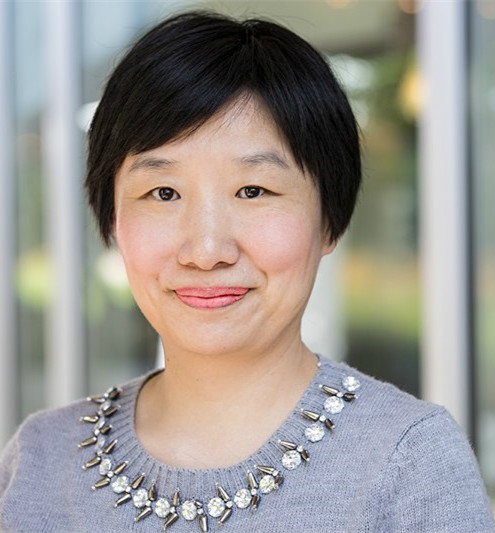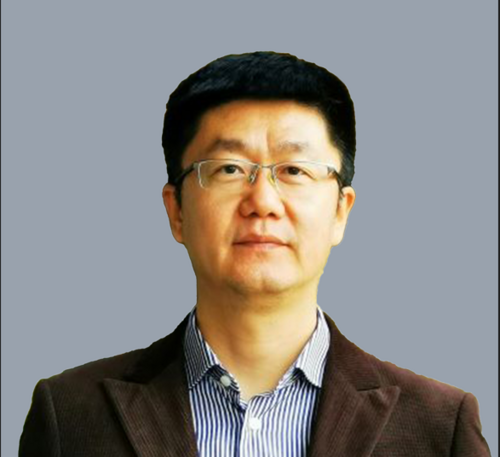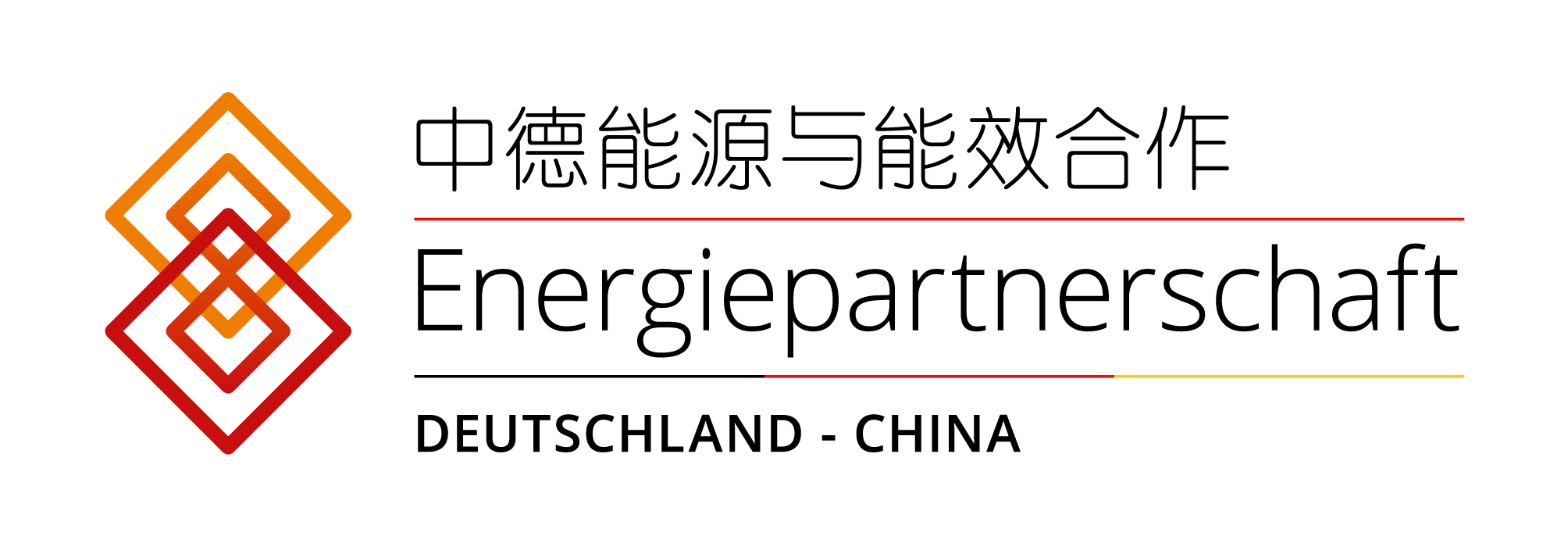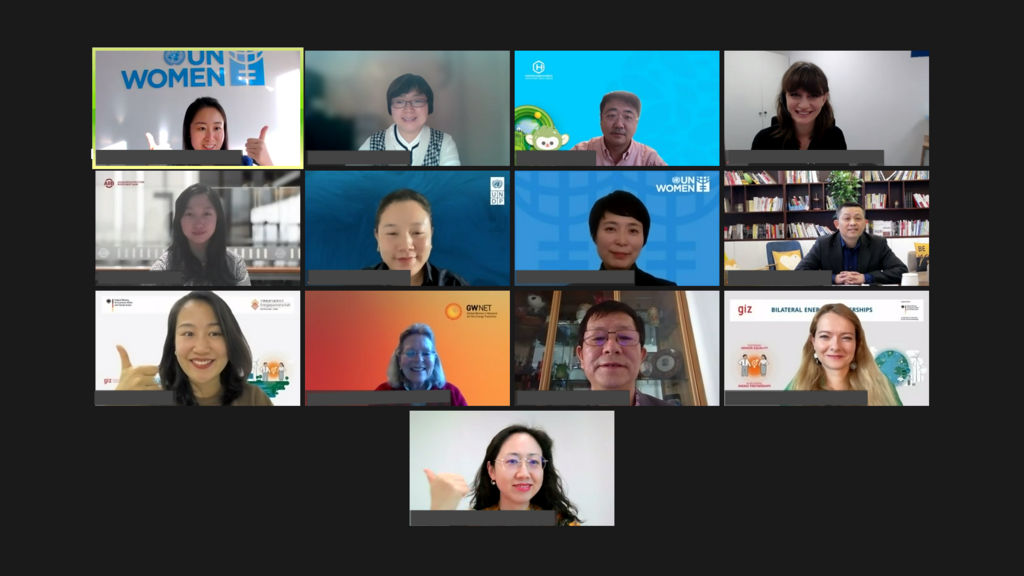Beijing, China — On 15 November, as the Gender Day on 14 November at COP 27 shed light on the role of women in adapting to climate change, GIZ joined forces with UN Women and UNDP and called for action on promoting a gender-just green transition to tackle the gender gap in climate action. The workshop invited multiple stakeholders to examine solutions and measures for integrating a gender-just perspective into political, social, and economic development.
Women are more easily to be affected than men by the negative impacts of climate change and climate disasters, especially women living in rural and poor areas. However, in most countries and regions, strategies to address climate change focus more attention on technological innovation for energy restructuring and less attention on the way climate change affects women and men. Gender differences, in terms of access to natural resources and participation in policymaking and economic activities, remain underappreciated as subjects of climate action.
Women’s participation, experience and voice are critical to develop innovative solutions and drive green, low-carbon transitions. Gender-just green policy measures can remove structural barriers to women’s participation in transforming the energy sector, foster women’s career development and economic empowerment, and ensure that women are included in the green sector in the future.
The workshop convened representatives of the Governments of China, Germany and other countries, as well as representatives of industry associations, enterprises and international organizations in the fields of climate change adaptation, energy transition and environmental protection, and experts and scholars on gender issues, to focus on the current situation, challenges and opportunities for women’s participation in green transitions, and to discuss and exchange relevant experiences related to policies, efforts and measures in different sectors. More than 2,700 people watched the live stream of the workshop.
In his opening speech, Thorsten Giehler, Country Director of GIZ China, emphasized women’s participation in generating innovative solutions. “Research has shown again and again that innovation and success come with diversity. Hence, we need our brightest women and men to tackle the energy transition. We need diversity and equality on all hierarchies of energy companies, think tanks and authorities.”
Smriti Aryal, Country Representative of UN Women China, spoke of structural inequalities in addition to climate change and its impact. “The success of green transitions requires the contributions of women on an equal footing with men. Effective measures are needed to tackle the gender gap in current climate action, including through collecting and using gender-disaggregated data, enhancing coordination and gender mainstreaming across sectors and all levels of government, strengthening the resilience of women, especially women who work in the informal sector and those who are most vulnerable to socioeconomic shocks, and unleashing women’s real and potential capabilities in green transitions.”
Beate Trankmann, Resident Representative of UNDP China, said UNDP is working to support countries around the world to connect the dots between climate action, social inclusion, gender equality and sustainable development. “A green economy transition is at the heart of reaching net-zero emissions. However, if not managed well, it risks widening social inequalities. For instance, while an estimated 42 million new green jobs will be created globally by 2050, most of these, according to International Labour Organization, will be in male-dominated sectors – like renewables, manufacturing, and construction – meaning women are at risk of being left behind.”
Ge Chazhong, Professor and Chief Scientist of the Chinese Academy for Environmental Planning, Ministry of Ecology and Environment shared that "Chinese women are actively engaged in the cause of ecological and environmental protection, but the current environmental and climate policies still lack gender perspectives. It is suggested to incorporate gender perspectives into the ecological and environmental protection and climate change laws and policies, ensure the equal and legitimate rights and interests of both men and women, and strengthen women's decision-making and participation in in ecological and environmental protection and climate response. It is needed to protect rural women's land ownership and enhance their participation in local governance."
Irene Giner-Reichl, founding member and Senior Advisor of the Global Women’s Network for Energy Transition (GWNET), emphasized “the energy transition is multidimensional, complex, non-linear, non-deterministic and highly uncertain. Therefore, the energy transition requires not only behaviour change, innovation and integration across sectors, but also a large diverse talent pool.”
The workshop included panel discussions on integrating gender perspectives into policies, programmes and financing in green transition processes, and supporting women’s equal participation, promotion and leadership in green industries and enterprises. This event was also a follow-up activity to the “Women in Green Energy” initiative, which was launched by GIZ in cooperation with various institutions in the framework of the Sino-German Energy Partnership supported by the Federal Ministry for Economic Affairs and Climate Action of Germany (BMWK).












